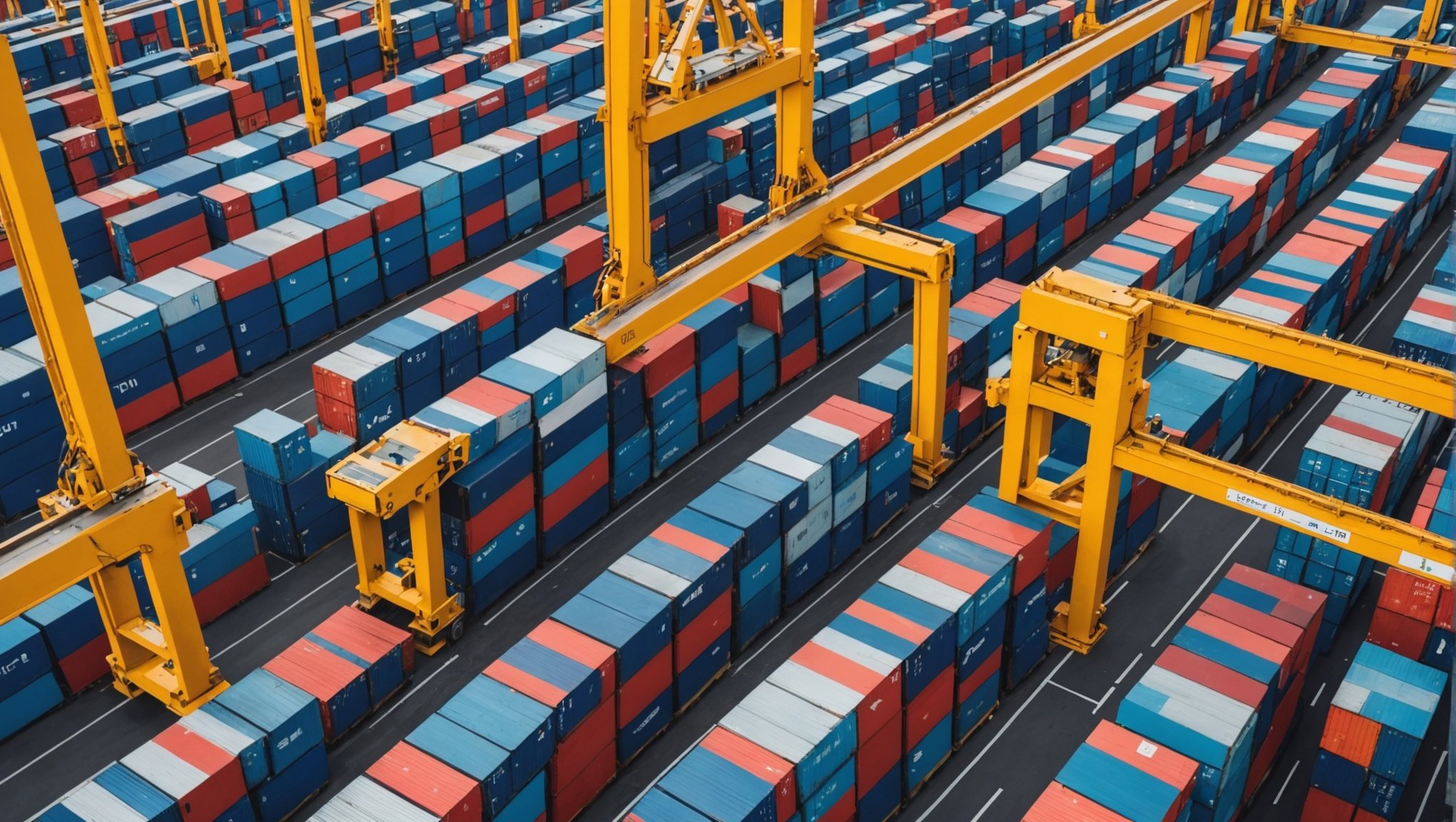Unlocking Efficiency: AI Integration Strategies for UK SMEs in Supply Chain Management
In the fast-paced world of business, small and medium-sized enterprises (SMEs) are constantly seeking ways to enhance their operational efficiency, stay competitive, and drive growth. One of the most promising tools in this quest is artificial intelligence (AI). Here, we will delve into how UK SMEs can leverage AI to transform their supply chain management, and explore the strategies, benefits, and challenges associated with this integration.
Understanding the Landscape of AI in UK SMEs
Before diving into the specifics of AI integration in supply chain management, it’s crucial to understand the broader context of AI adoption among UK SMEs.
Also read : Empowering Customer Support: Innovative Ways UK Tech Startups Can Leverage AI
According to the UK’s AI sector study for 2023, the AI sector is rapidly expanding, with a significant number of SMEs entering the market. The study estimates that there are currently 3,713 active UK companies providing AI products and services, with 96% of these being SMEs, including micro businesses.
This growth is driven by the increasing accessibility of AI-powered solutions. As noted by the Bank of England, software developments have made AI use more accessible to companies, allowing them to buy off-the-shelf AI-powered solutions even if they haven’t invested in developing their own AI tools.
In the same genre : Essential Strategies for UK SMEs to Safeguard Data Privacy in International Transactions
Benefits of AI in Supply Chain Management for SMEs
AI can revolutionize supply chain management for SMEs in several key areas, leading to enhanced efficiency, better decision-making, and improved customer satisfaction.
Predictive Analytics and Demand Forecasting
AI-driven predictive analytics can help SMEs forecast customer demand more accurately. By analyzing historical data, market trends, and real-time inputs, AI systems can predict changes in demand, enabling businesses to adjust their inventory levels and production schedules accordingly. This minimizes the risk of stock overhangs and ensures that products are available when customers need them.
Inventory Management
AI can optimize inventory management by automating the tracking of stock levels, predicting stockouts, and automatically ordering new stock. This real-time monitoring ensures that SMEs maintain the right inventory levels, reducing waste and the costs associated with overstocking or understocking.
Supply Chain Optimization
AI can streamline supply chain operations by predicting and scheduling production and service downtimes, managing workflows, and optimizing delivery routes. For instance, AI can analyze traffic patterns and weather conditions to route deliveries more efficiently, reducing transit times and costs.
Better Compliance and Risk Management
AI can monitor all regulatory and legal obligations automatically, ensuring that SMEs comply with all necessary standards. It can also detect potential risks in real-time, such as geopolitical events or natural disasters affecting suppliers, and alert the procurement team to pivot towards alternative suppliers.
Practical Strategies for AI Integration
Integrating AI into supply chain management is not a one-size-fits-all solution. Here are some practical strategies that SMEs can consider:
Start Small and Scale Up
SMEs should begin by identifying specific areas where AI can add immediate value, such as inventory management or demand forecasting. Starting with small, manageable projects allows businesses to test the waters, build confidence, and then scale up their AI integration.
Choose the Right AI Solutions
Selecting the appropriate AI tools is crucial. SMEs should look for solutions that are tailored to their specific needs and can integrate seamlessly with their existing systems. For example, AI sourcing and procurement software can automate routine activities like invoice processing and contract management, freeing up staff to focus on strategic activities.
Invest in Data Infrastructure
AI thrives on data, so SMEs need to ensure they have a robust data infrastructure in place. This includes standardizing data models, ensuring data quality, and implementing systems that can collect and analyze vast datasets in real-time.
Train and Upskill Staff
AI integration requires staff to have the necessary skills to work effectively with these new technologies. SMEs should invest in training programs that help employees understand AI, its applications, and how to interpret AI-generated insights.
Challenges and Best Practices
While AI offers numerous benefits, its adoption is not without challenges. Here are some key considerations and best practices:
Cultural and Competency Barriers
AI adoption requires a cultural shift within the organization. SMEs need to ensure that their employees are aware of the benefits of AI and are willing to adapt. This involves creating an AI-friendly culture where employees are encouraged to exchange ideas about AI usability.
Data Quality and Security
AI systems are only as good as the data they are fed. SMEs must ensure that their data is accurate, complete, and secure. This involves implementing robust data governance policies and ensuring that data is standardized and easily accessible.
Regulatory Compliance
SMEs must comply with all relevant regulations when adopting AI. This includes ensuring that AI systems meet legal and ethical standards, particularly in areas such as data privacy and bias in decision-making.
Real-World Examples and Success Stories
To illustrate the practical application of AI in supply chain management, let’s look at a few real-world examples:
Limejump and Energy Management
Limejump, a UK-based company, uses AI and machine learning to manage distributed energy networks, grid balancing, and demand response. This helps in supporting a more sustainable and efficient energy system. By leveraging AI, Limejump can predict energy demand and adjust supply accordingly, optimizing energy usage and reducing waste.
Leonardo and Defence Supply Chains
Leonardo, a technology company, has been working with the UK Ministry of Defence to integrate AI into defence supply chains. This involves using AI to predict supplier behavior, optimize pricing strategies, and automate routine activities. Such integration helps in enhancing the efficiency and effectiveness of defence operations.
Detailed Benefits for SMEs
Here is a detailed list of the benefits that SMEs can derive from integrating AI into their supply chain management:
- Immediate Risk Detection: AI actively scans for risks and sends alerts, enabling SMEs to pivot quickly to alternative suppliers or strategies.
- Better Compliance of Contracts: AI monitors all regulatory and legal obligations automatically, ensuring compliance and reducing the risk of errors.
- Data-Driven Decision-Making: AI provides holistic risk analysis and insights, enabling SMEs to make informed strategic decisions.
- Predictive Supplier Behavior: AI models predict supplier responses based on past behavior and current market trends.
- Pricing Optimization Strategy: AI analyzes historical pricing data to suggest suitable pricing strategies during negotiations.
- Automated Workflow Management: AI automates routine activities such as invoice processing, purchase orders, and contract management, freeing up staff for more strategic tasks.
- Enhanced Customer Service: By ensuring timely and accurate deliveries, AI helps SMEs improve customer satisfaction and build a competitive edge.
Comparative Analysis of AI Integration Maturity Levels
Here is a comparative analysis of the different maturity levels of AI integration in SMEs, based on the model proposed by Ericsson et al.:
| Maturity Level / Dimensions | Level 1: Initial | Level 2: Experimental | Level 3: Practicing | Level 4: Integrated | Level 5: Transformed |
|---|---|---|---|---|---|
| Culture and Competencies of Employees | Not aware of AI benefits | Inexperienced, slow approach | Know the benefits of AI | Exchange ideas about AI usability | Aware and can achieve desired AI goals |
| AI Strategy | Ad hoc AI strategies | First project | First AI strategy pursued | Integral part of the strategy | AI roadmap with a long-term perspective |
| Data | No standard | Planning data acquisition | Standards | Standardized data model | Insights from data used operationally and strategically |
| Organization and Processes | Does not meet AI requirements | Deals with AI | Initial AI roles | Training programs + AI experts | AI systems constantly optimized and developed |
| Technology | No deployment capability | Initial insights from collected data | First AI technologies implemented | Inclusion of enabling AI technologies | All areas use AI and ML |
Integrating AI into supply chain management is a transformative step for UK SMEs, offering significant improvements in efficiency, decision-making, and customer satisfaction. However, it requires careful planning, investment in data infrastructure, and a cultural shift within the organization.
As the UK’s AI sector continues to grow, SMEs that adopt AI early will gain a competitive edge. Here are some final insights and advice:
- Start with Clear Goals: Define what you want to achieve with AI integration and focus on areas that will deliver immediate value.
- Invest in Training: Ensure your staff have the necessary skills to work effectively with AI technologies.
- Monitor and Adjust: Continuously monitor the performance of AI systems and adjust strategies as needed.
- Stay Informed: Keep up with the latest developments in AI and supply chain management to stay ahead of the curve.
By embracing AI and integrating it into their supply chain management, UK SMEs can unlock new levels of efficiency, drive growth, and remain competitive in a rapidly changing business landscape.











